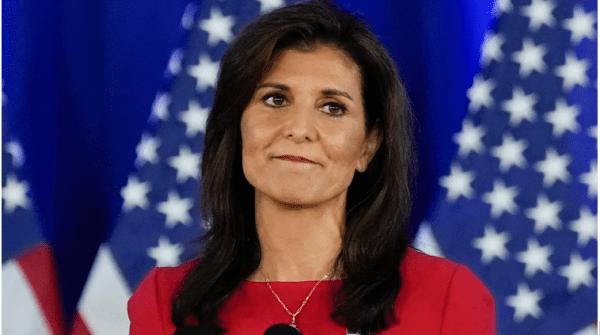This past week, the so-called “Super Tuesday” primary elections in the US took place and its results surprised few. Super Tuesday is a term coined by many political commentators for the day on which many states schedule their primary elections and thus is seen by many as a deciding day for primary campaigns. Many had predicted the result of this year’s edition: current President Joe Biden won every one of the 15 state races that took place for Democrat candidates, while former President Donald Trump won all but one against the other Republican candidates. Despite these seemingly straightforward results, there were still many aspects of the outcome that political commentators found noteworthy and interesting.
Firstly, former President Trump’s only true challenger, former South Carolina governor Nikki Haley, won her first state, Vermont, but nonetheless did worse than many had hoped, leading to speculation that she would drop out of the race. This speculation turned true on March 7th, when Haley gave her final speech as a primary challenger and announced her exit from the race. However, Haley still continued some of her campaign rhetoric, refusing to outright endorse Trump, making it more difficult for him to win over the moderate Republicans and independents who had supported her.

Haley’s exit from the race leaves Trump with no major challengers, but given Trump’s large margins of victory in most primaries that have already taken place, Haley’s exit is unlikely to have a major impact on the remainder of the primaries. Aside from Vermont, the only other primary Haley had won was Washington D.C.’s, failing to achieve the performance she desired in all others. Likewise, one of Joe Biden’s only challengers, Minnesotan Representative Dean Phillips also dropped out of the race following insignificant results in the primaries, but unlike Nikki Haley, he endorsed Biden, asking his voters to, “ help keep a man of decency and integrity in the White House”.
Instead of Dean Phillips, one of Biden’s major competitors in his primaries has been not a person, but “Uncommitted.” Beginning in February’s primary in Michigan, which has one of the largest Arab-American populations in the nation, 13% of voters – more than 100,000 – voted “uncommitted,” instead of a candidate, in order to protest the President’s position on the current Israeli-Palestinian conflict. After this received a large amount of media coverage, last-minute grassroots campaigns began in Super Tuesday states, focusing on demonstrating voter unhappiness with some of Biden’s policies. These efforts were moderately successful; in Minnesota, home to one of the largest East African populations outside of the region, nearly 20% of voters chose, “uncommitted,” more than double the amount that voted for the state’s own Dean Phillips.

Moving on from the Super Tuesday primaries, protest organizers are now turning their efforts to the upcoming primaries in Georgia and Washington, hoping to continue their trend of relative success and send President Biden a strong message of discontent. Especially in states that President Biden won by slim margins in the 2020 election, such as Michigan, which Biden won by less than 200,000 votes, or Georgia, which Biden won by a mere 12,000 votes, protest organizers hope to show Biden just how important it is to win over their voters.
However, President Biden wasn’t the only candidate to receive warning signs from the Super Tuesday primaries; presidential hopeful Trump, despite beating Haley in all races but one, still saw some dangerous warning signs. For example, in North Carolina, a state Biden will likely look to flip come this November given Trump’s tiny margin of victory there in 2020, 81% of Haley’s voters say they would not vote for Trump in the general election. Trump will likely be challenged by many of Nikki Haley’s supporters, the majority of whom are well-educated urban voters, two demographics Trump struggles with. Further issues for Trump such as his ongoing legal struggles and continued hard-line rhetoric on many issues may further alienate these more moderate voters, making a potential victory for him this November more difficult.
Still, despite some surprises and warning signs for the major candidates, both Biden and Trump swept nearly all primaries, exhibiting the dominance they still enjoy in their respective races. Yet, protest movements against both candidates made their mark, exposing just how fractured the presidential race is, and indicating key issues candidates are likely to focus on during the rest of their campaigns.
Cover Image: (From Left to Right) Current President Joe Biden, Former President Donald Trump, & Former South Carolina Governor Nikki Haley







